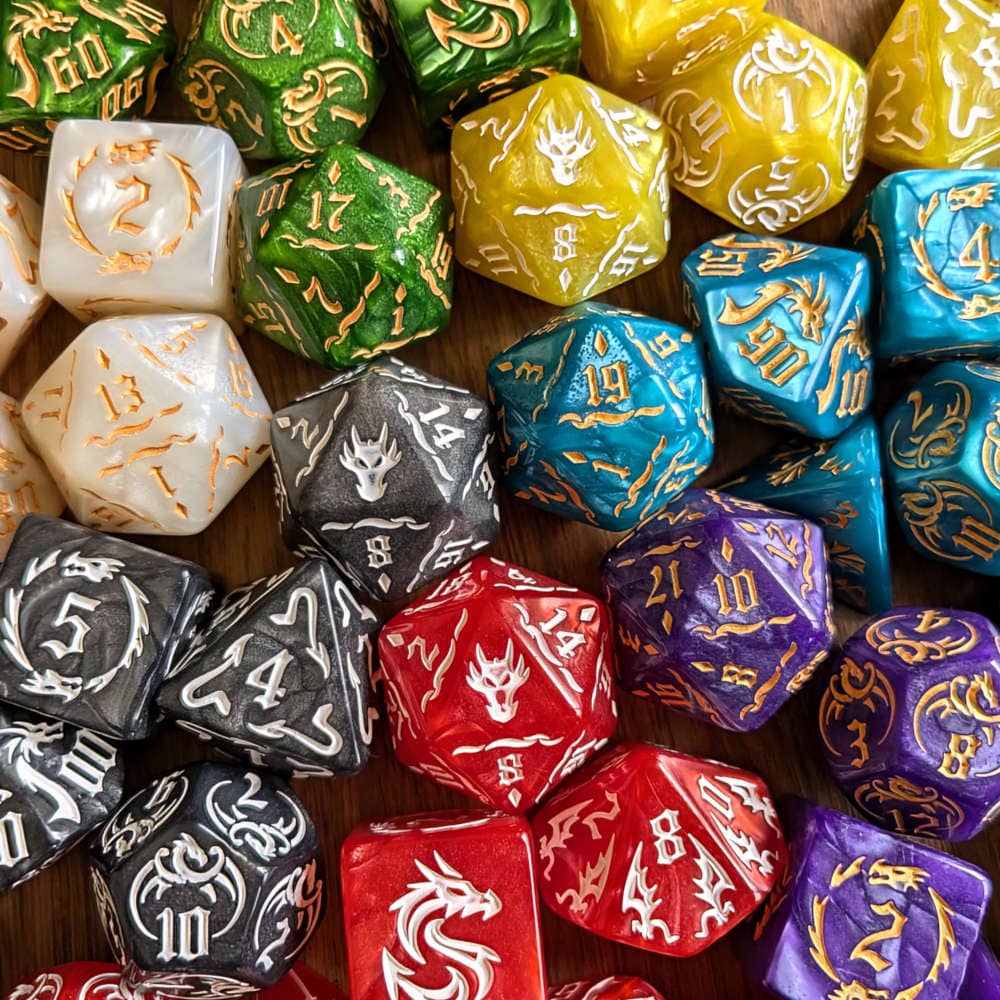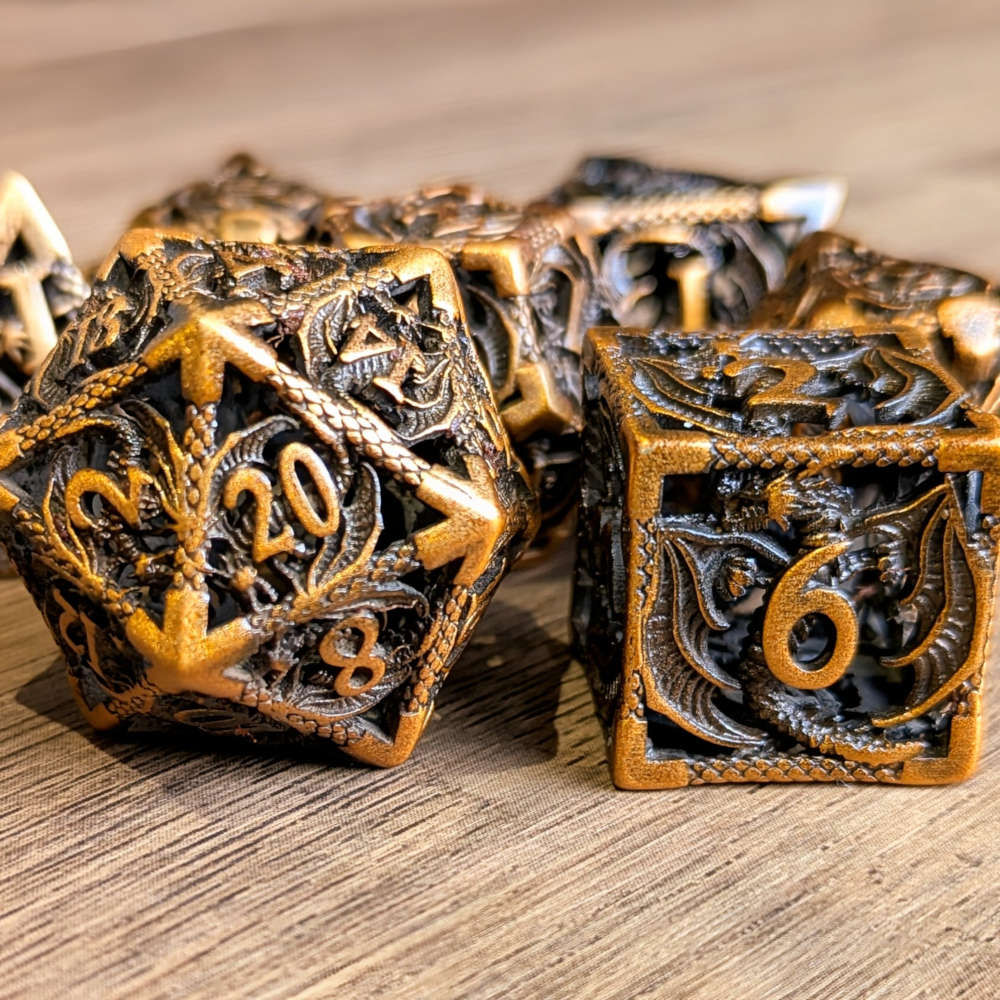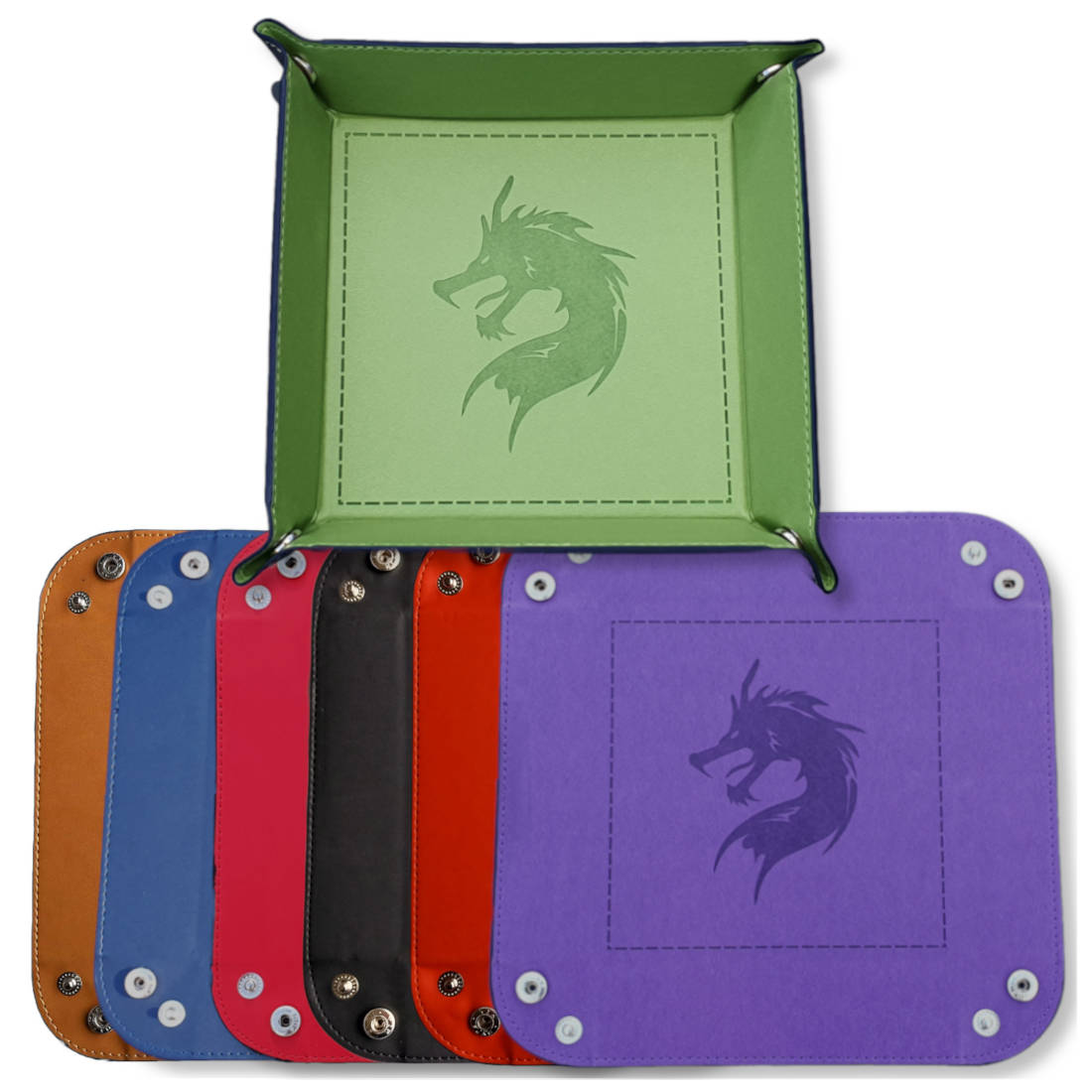How to check if your dice are balanced

In tabletop gaming, the roll of the dice is often the arbiter of fate. Whether you're delving into dungeons in Dungeons & Dragons, leading armies in wargames, or navigating the perils of a board game, having balanced dice is crucial for fair gameplay. Fortunately, there's a simple method to check if your dice are fair - the saltwater test.
In this guide, we'll walk you through the steps of performing the saltwater test and provide tips on how to interpret the results, so you can enjoy a level playing field in your tabletop adventures.
What are fair dice?
Fair dice are those that have an equal chance of landing on each side. For example, a twenty-sided die (d20) is considered fair when each face has an equal probability of 1/20 or 5%.
What causes dice to be unbalanced?
There are several reasons why your dice may appear to be unbalanced.
Poor quality materials
When dice are manufactured from low-quality materials, imperfections or inconsistencies can arise, leading to uneven weighting. While the material itself doesn't inherently affect fairness; whether metal, resin, or liquid core; sub-standard manufacturing processes can introduce irregularities.
To ensure fair play, we suggest sticking with reputable retailers and avoiding dice with visible flaws. Be sure to check out our guide on things to consider when buying dice to make informed choices and avoid accidently choosing low-quality dice.
Bubbles within the dice
Air bubbles trapped within dice can impact their balance. These bubbles, sometimes found in resin, acrylic, and liquid core dice sets, don’t usually cause dice to become unfair. That is, unless they are large enough to create uneven weight distribution.
Small bubbles are often present in dice, but if you spot lots of large bubbles throughout the dice, or see many bubbles at the edges or in corners of the dice.
The way dice are rolled
While the dice themselves may be balanced and fair, it's important to roll them in a way that maximises randomness. Try to avoid simply dropping dice - they should tumble and roll around freely to give a fair and random outcome.
We highly recommend using a dice tray, otherwise you might risk your dice falling off the table. This is especially important for D&D or wargames where multiple dice are often rolled.
What is the saltwater dice balance test?
The saltwater dice balance test is a simple way to check the fairness of your dice. It involves placing one die in a glass of salt water and writing down the numbers it rolls.
This helps identify any inconsistencies in their rolling patterns, giving you an indication of whether your dice are balanced or not. You can test each die one at a time, over a statistically relevant sample size, to understand if your dice are fair or not.
To conduct the saltwater test, you'll need:
- A clear glass or jar
- Salt
- Water
- A dice set you wish to test

Above: we performed the saltwater test on our dice. Here, we checked the results of our d20 die, and recorded the results in our dragon notebook.
Once you have these items ready, follow our steps to test the balance of your dice:
- Fill your glass or jar with water: Warm tap water should suffice for this test.
- Add salt to the water: Use one tablespoon or two, adjusting as needed based on the volume of water in your container.
- Mix: Stir for 30 seconds or until the salt has dissolved, creating a saltwater solution.
- Test one die at a time: Submerge one die into the saltwater. After it settles, gently poke it with your finger. Record the outcome and repeat this process several times. We recommend conducting this step plenty of times to be able to draw a reliable conclusion.
It’s crucial that you don’t leave your dice submerged in water for extended periods of time. When testing metal dice, be sure to rinse and dry them promptly to prevent rust. Avoid conducting this test with wooden dice to avoid damaging them.
How do I know if my dice are balanced?
When performing the saltwater test, a balanced die typically displays different numbers upon settling each time. If you notice consistent rolls of a particular number, it may indicate imbalance.
To ensure accuracy, conduct lots of tests; a statistically relevant sample size of at least 50 to 100 tests provides a more accurate assessment of a die’s balance.
Is the saltwater test reliable?
While the saltwater test is a reasonable method for checking dice fairness, the challenge lies in obtaining a statistically relevant sample size. Jumping to conclusions after just a few tests isn't accurate; fair dice require hundreds or thousands of rolls to approach their expected average.
How else can I test if my dice are balanced?
Another way to test dice balance is by rolling them into a dice tray or tower. Ensure ample space for the dice to tumble freely, mimicking random outcomes. Like the saltwater test, take a sizable sample for statistical relevance.
Are DND dice fair?
Yes. D&D dice (D4, D6, D8, D10, D12, D%, and D20) are fair by design. Their isohedral design ensures symmetry on all sides, contributing to fair outcomes.
However, the material used can impact balance. For example, cheaply made resin dice may be less fair than metal ones due to variations in production. Also, metal dice can seem less fair than other types of dice as they are heavier, meaning they may tumble around less if rolled incorrectly.
Check out our guide detailing the differences between metal and plastic dice to learn more.
How to tell if dice are weighted
Weighted dice often land on a specific face due to uneven weight distribution. If one outcome is noticeably more frequent or the die consistently lands in one area, it may be weighted. Make sure you have a statistically relevant sample size before concluding.
Explore our range of dice
Now that you've mastered the art of checking your dice's balance, why not delve deeper into the world of dice? Explore our guide to the most popular colours of dice, and discover what sets them apart.
If you find yourself feeling unlucky despite balanced dice, it might be time for a new set! Treat yourself to one of our TTRPG dice sets, featuring a variety of styles and materials, including our hefty but affordable metal D&D dice. Try pairing it with a dice scroll of rolling for a convenient and safe rolling surface.





